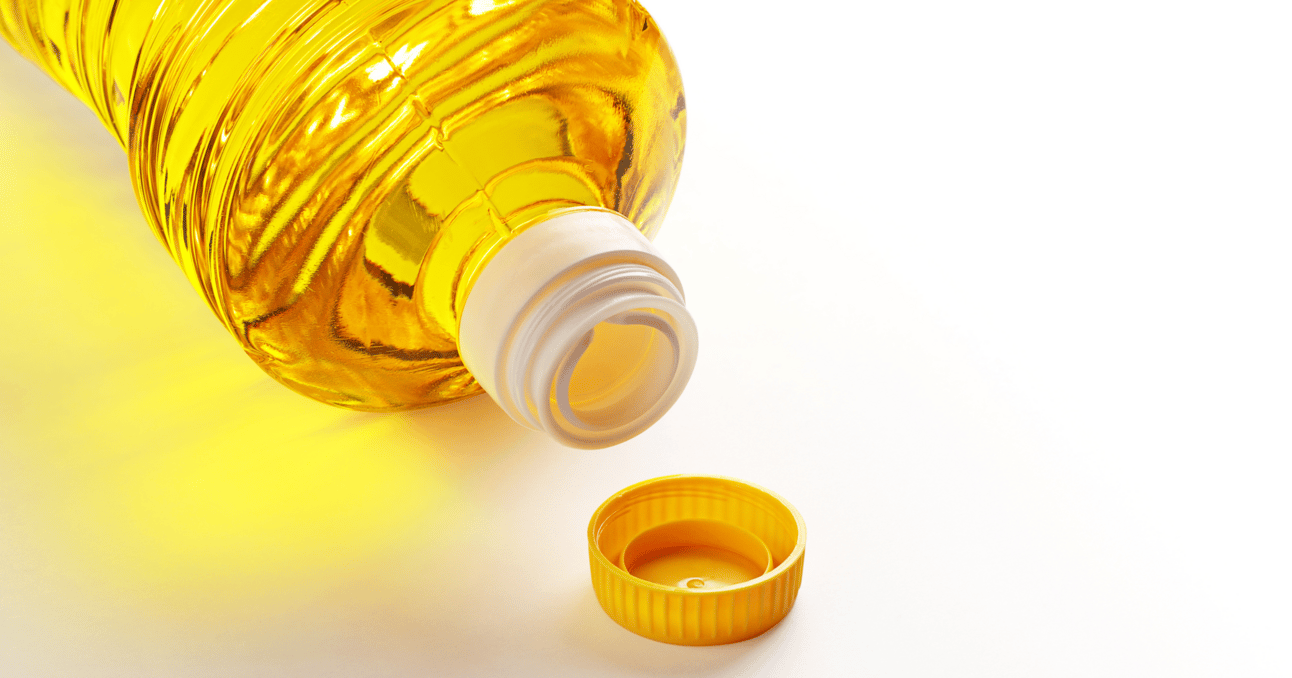- organiqs
- Posts
- Seed Oils
Seed Oils
Learn the truth about this kitchen staple


Hey, it’s Benji 👋
It’s one of the most controversial topics in nutrition right now.
It took me many days of research (and headaches) to finally understand it!
We cook, fry, and season with it.
Can you guess what it is?
Starter 🥗
Good or Bad?
The consumption of this item has increased drastically over the last few centuries.
Last year alone, we consumed over 200 million metric tons of it - enough to build two Great Walls of China.
Some say they’re totally fine. ✅
Others call them toxic. ☢️
And even doctors, scientists, and nutrition experts can’t seem to agree.
But the real issue is… they are everywhere!
In your favorite snacks, takeout meals, sauces, baby formulas, oat milk, and salad dressings.
It’s probably chilling somewhere in your kitchen! 🍴
So what exactly are seed oils?
And how do they affect the human body?
Let’s break it down. 👇
Main Course 🥙
The Truth about Seed Oils
What are seed oils?
They are oils from seeds and vegetables extracted - either mechanically or/and chemically. 🌱
They’re cheap to produce, easy to store, and widely used in processed foods and restaurant cooking.
Types of seed oils
We often consume certain seed oils daily, often without realizing it. 👀
The most commonly consumed ones include:
Canola (rapeseed)
Soybean
Sunflower
Cottonseed
Corn
Grapeseed
Rice bran
Safflower
However, there are also less commonly used seed-based oils that derive from:
Sesame
Chia seed
Walnut
Pumpkin seed
Black seed
Flaxseed
How are they produced?
There are two main extraction methods:
Mechanical extraction - crushing seeds to release oil 🦾
Chemical extraction - using solvents like hexane (a neurotoxin) to pull out more oil. 🧪
After extraction, most seed oils undergo a refining process known as “RBD” (refined, bleached, and deodorized).
This removes flavor, color, and odor, leaving behind a long shelf-life oil that’s nearly tasteless... but also nearly nutrientless.
Are they good for us?
Yes and no.
Seed oils are high in the essential omega-6 fatty acid lineleic acid, which is important for brain development, immune function, and cellular health.
But consuming highly refined seed oils, especially those used in processed foods, is known to lead to long-term health issues. 🤒
Unrefined seed oils, on the other hand, are higher in protective compounds, such as vitamin E and carotenoid antioxidants, making them a healthier overall choice. ✔️
So what’s the real deal with these oils?
To understand why seed oils are considered toxic, there are four key issues to be aware of:
The Production
To keep costs low, manufacturers often rely on cheap chemical solvents and industrial refining that can be toxic for people. ☢️
Furthermore, undergoing refining, bleaching, and deodorizing is a highly unnatural chemical process, stripping away its protective compounds.
The result: a highly processed fat that barely resembles the original seed. 👀
The Ratio
We need a healthy balance of omega‑6 and omega‑3 fats. ⚖️
Too much omega-6 relative to omega-3 can increase the risk of chronic inflammation, heart disease, obesity, and type 2 diabetes.
The ratio in traditional diets used to be 1:1 to 4:1, but nowadays, the ratio of modern diets is more like 15:1 to 20:1. 😮
The Oxidation
Most seed oils are polyunsaturated fatty acids (PUFAs).
The problem with polyunsaturated fats is that all these double bonds are very unstable at high temperatures and prone to oxidation - a process that forms harmful compounds (free radicals) that can lead to cell damage. 🦠
Arachidonic Acid (for nerds)
Omega‑6 linoleic acid is converted in the body to arachidonic acid, which then creates eicosanoids → molecules that regulate inflammation.
Here’s the catch:
Eicosanoids from omega‑3s (EPA & DHA) → anti-inflammatory
Eicosanoids from arachidonic acid (omega-6) → pro-inflammatory
So if your omega‑6 intake is too high (and omega‑3 too low), your body may be more prone to inflammation.
👩🍳 Chef Tip: Get rid of cheap, highly oxidized, chemically processed seed oils and switch to organic, mechanically cold-pressed seed oils. 🌱
Dessert 🍰
Healthy Seed Oils + Alternatives
Instead of ditching all seed oils, start upgrading your choices. 😉
Here’s a no-fluff list of healthy seed oils and alternatives to support better balance between omega-3s and omega-6s - without sacrificing flavor:
🥑 Avocado oil - High smoke point makes it ideal for high-heat cooking while providing heart-healthy monounsaturated fats
🥗 Extra virgin olive oil - Rich in monounsaturated fats and antioxidants, perfect for low-heat cooking and finishing dishes
🥥 Coconut oil - Contains medium-chain triglycerides that are easily metabolized and provide quick energy (high smoke point)
🌱 Cold-pressed seed oils (for finishing) - Walnut oil, macadamia oil, sesame oil, flaxseed oil, black seed oil, …
🥩 Beef tallow (beef fat) - Naturally stable saturated fat that our ancestors used for centuries, excellent for roasting and extra flavor
🧈 Grass-fed butter - Supplies fat-soluble vitamins A, D, E, and K2
🧈 Grass-fed ghee - Clarified butter with a higher smoke point and lactose removed, perfect for high-heat cooking without dairy concerns
My tips:
✅ Use the oils you like - consistency matters more than perfection
🧠 Be aware of your omega-6 to omega-3 intake (balance is key)
📦 Quality > quantity - less processed = healthier
🔍 Check the labels - look for “cold-pressed,” “unrefined,” or “mechanical extraction”
Snacks 🥜
Dad Joke of the Week
My wife asked me to get some baby oil.
Does anyone know how to extract it?
A Deep Question
What simple pleasures have become rare in your life, and how can you welcome them back?
A Friendly Reminder
“Do more things that make you forget to check your phone.”
Takeaway 🎁
You aren’t satisfied yet?
Here are my Ingredients and Recommendations for you:
🎙️ Podcasts
Max Lugavere: Seed Oils, LDL Cholesterol & Inflammation (The Ultimate Human)
UNFILTERED Truth On Seed Oils: Science-Based Gut Health Tools (The Better Brain Podcast)
Should we avoid ALL seed oils? (the mindbodygreen podcast)
📚️ Book
Dark Calories: How Vegetable Oils Destroy Our Health and How We Can Get It Back (Catherine Shanahan, MD)
📺️ Videos
The Truth About Seed Oils (Huberman Lab Clips)
Seed Oils, The Dirty 8 That Are Destroying Your Health (The Ultimate Human)
The Truth About Seed Oils: Separating Science From Hype (Business Insider)
Do NOT Cook with This!!! (Dr. Eric Berg DC)
📑 Articles
Are Vegetable and Seed Oils Bad for Your Health? (Healthline.com)
What Are Seed Oils and How Do They Affect Your Health? (Health.com)
What are seed oils? (MedicalNewsToday)
Seed Oils: Are They Actually Toxic? (Cleveland Clinic)
Are seed oils bad for you? (ZOE)
Are seed oils toxic? It's complicated (Business Insider)
How did you like this week's menu? |
Thank you for being here 💝
Looking forward to serving you next week.
Much love,
Benji
Reply